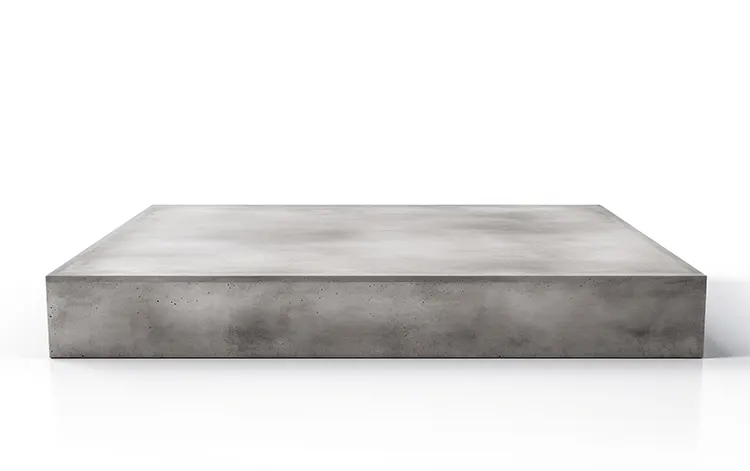When installing a concrete driveway, thickness plays a crucial role in determining its durability, longevity, and ability to withstand different loads. Choosing the right thickness ensures your driveway remains crack-free and functional for years to come. In this guide, we’ll answer the key question: how thick should a concrete driveway be? We’ll also cover important considerations, factors affecting thickness, and how a concrete calculator can help.
Ideal Thickness for a Concrete Driveway
The standard thickness for a residential concrete driveway is 4 inches. However, this can vary based on factors such as the type of vehicles using the driveway and soil conditions. Below are general guidelines:
- Standard passenger vehicles – A 4-inch thick concrete driveway is sufficient.
- Heavy-duty vehicles (RVs, trucks, or frequent heavy loads) – A 5 to 6-inch thick driveway is recommended.
- Commercial driveways – A 6 to 8-inch thickness is necessary for durability.
Why Does Thickness Matter?
The thickness of your driveway determines how well it can handle weight and resist cracking. A thicker slab increases strength and extends lifespan, while a thinner slab is more prone to damage, especially under heavy loads.
Factors Affecting Concrete Driveway Thickness
1. Type of Traffic
- A 4-inch driveway works well for cars and light vehicles.
- If you plan on parking heavy trucks or RVs, a thicker slab is crucial.
2. Soil and Subgrade Preparation
- A properly compacted subgrade enhances driveway durability.
- Weak or expansive soils may require additional reinforcement or a thicker slab.
3. Reinforcement Needs
- Adding rebar or wire mesh can improve strength.
- For high-traffic areas, fiber reinforcement may be beneficial.
4. Climate Considerations
- Freeze-thaw cycles can lead to cracks if the concrete isn’t thick enough.
- Proper drainage helps prevent moisture damage.
Concrete Thickness Requirement in New York
The minimum thickness requirement for a concrete driveway slab in New York generally follows standard guidelines:
- Residential Driveways: 4 inches minimum
- Heavy-Duty or Commercial Driveways: 5 to 6 inches
- Industrial or High-Traffic Areas: 6 to 8 inches
However, local building codes may have specific requirements based on soil conditions, climate, and load-bearing needs. It’s best to check with the New York City Department of Buildings (DOB) or your local municipal office for exact regulations.
Types of Concrete Slabs, Their Uses, and Required Thicknesses
Concrete slabs come in various types, each designed for different structural and load-bearing applications. Below is a detailed breakdown:
1. Slab-on-Grade
✅ Use: Residential driveways, patios, walkways, ground-level floors
📏 Thickness:
- Light-duty (pedestrian, patios, walkways): 3-4 inches
- Driveways (residential): 4-5 inches
- Heavy-duty driveways or parking lots: 6-8 inches
🔹 Key Features:
- Poured directly on the ground
- Requires proper subgrade preparation (gravel, sand base)
- Reinforcement with wire mesh or rebar recommended for load-bearing applications
2. Suspended Slab
✅ Use: Multi-story buildings, bridges, parking garages
📏 Thickness: 6-12 inches (varies by span and load requirements)
🔹 Key Features:
- Not in direct contact with the ground
- Supported by beams, columns, or walls
- Uses rebar or steel mesh for added strength
3. Precast Slab
✅ Use: Parking garages, industrial buildings, bridges, stadiums
📏 Thickness: Typically 6-12 inches
🔹 Key Features:
- Manufactured off-site and transported for installation
- Reduces on-site labor and curing time
- Often prestressed to improve load-bearing capacity
4. Hollow Core Slab
✅ Use: High-rise buildings, parking structures, industrial floors
📏 Thickness: 4-12 inches
🔹 Key Features:
- Precast with hollow voids to reduce weight and material use
- Excellent for insulation and load distribution
- Used for flooring and roof decks
5. Waffle Slab (Grid Slab)
✅ Use: Large commercial structures, auditoriums, bridges
📏 Thickness: 8-12 inches
🔹 Key Features:
- Grid-like reinforcement system with ribs
- Reduces overall weight while maintaining strength
- Common in buildings with large spans
6. Ribbed Slab
✅ Use: Parking structures, airports, commercial buildings
📏 Thickness: 8-12 inches
🔹 Key Features:
- Features ribs for added strength and weight reduction
- Reduces material usage while maintaining structural integrity
7. Post-Tensioned Slab
✅ Use: Skyscrapers, bridges, heavy-load structures
📏 Thickness: 8-14 inches
🔹 Key Features:
- Uses high-strength steel tendons to improve load resistance
- Reduces the need for expansion joints
8. Floating Slab
✅ Use: Garages, sheds, small home additions
📏 Thickness: 4-6 inches
🔹 Key Features:
- Can be poured without deep foundations
- Sits on compacted gravel or sand base
Using a Concrete Calculator for Driveway Thickness
A concrete calculator simplifies the process of estimating the amount of concrete needed for your project. By inputting your driveway dimensions (length, width, and desired thickness), you can determine the required cubic yards of concrete.
Steps to Calculate Concrete Needed:
- Measure the driveway length and width in feet.
- Determine the thickness required (4 to 6 inches).
- Use the formula: (Length × Width × Thickness) ÷ 27 = Cubic Yards of Concrete.
- Factor in a small overage for waste and spillage.
For convenience, many online concrete calculators are available to streamline this process.
Conclusion: Choosing the Right Thickness for Your Concrete Driveway
Understanding how thick should a concrete driveway be is essential for ensuring durability and long-term performance. Whether opting for a 4-inch or 6-inch thickness, proper installation and reinforcement are key to preventing damage.
If you’re unsure about the ideal thickness for your driveway, consult with a professional. At Mudjacking Contractor, we specialize in repairing and maintaining concrete surfaces to ensure they remain in optimal condition. Contact us today for expert guidance on your concrete driveway needs!
Frequently Asked Questions
1. How Thick Should Concrete Be for a Driveway?
A residential driveway should be at least 4 inches thick, while heavy-duty driveways should be 5-6 inches.
2. How Do I Calculate the Amount of Concrete Needed?
Use a concrete calculator to determine the required cubic yards by entering your driveway’s dimensions.
3. Does Adding Rebar Help Strengthen a Driveway?
Yes, rebar or wire mesh increases the tensile strength of concrete, reducing the risk of cracks.
For more information and expert services, visit MudjackingContractor.com.

